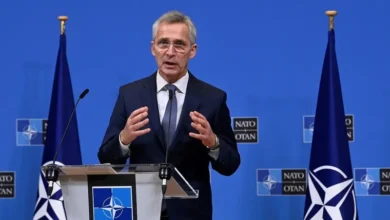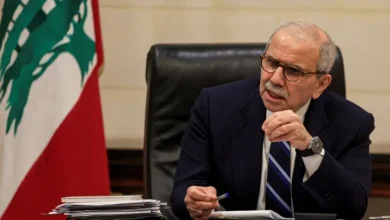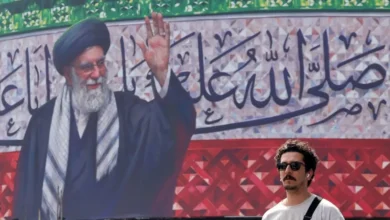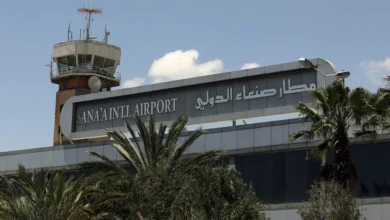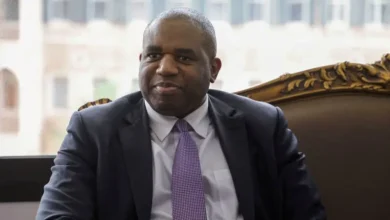A two-state solution is the only way for Saudi Arabia to recognize Israel: Diplomat
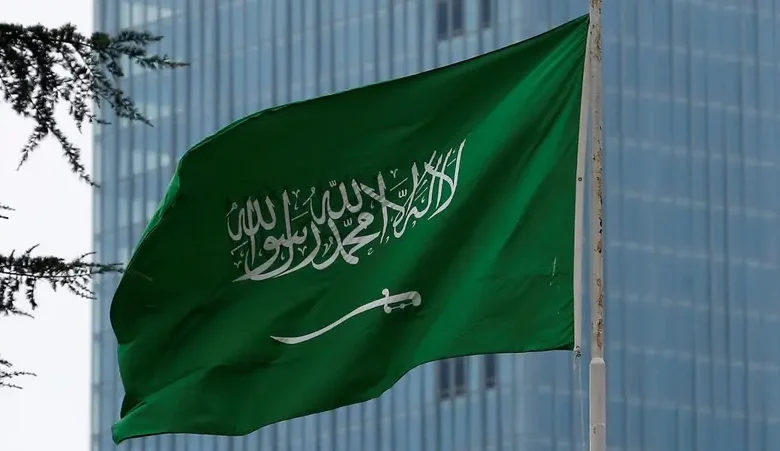
The only way Saudi Arabia will establish ties and recognize Israel is through a two-state solution, which includes Palestinian statehood, something Riyadh will not back down from, according to officials and diplomats familiar with Saudi thinking.
“We don’t have a partner on the other side that is helping us to make this step,” an Arab diplomat, who, like others Al Arabiya English spoke to, was granted anonymity to discuss the topic.
Israel has repeatedly stated that it opposes granting Palestinians their own state, especially following the Oct. 7 Hamas attack.
A vote brought forth in the Israeli parliament last month also reaffirmed their rejection of a two-state solution to the decadeslong conflict.
Arab countries have long said they are willing to recognize Israel but under the condition of resolving the Palestinian issue. That window, albeit more difficult post-Oct. 7, is still open.
“But there must be an irreversible, irrevocable” path to Palestinian statehood, the Arab diplomat said. And it’s on Israeli Prime Minister Benjamin Netanyahu to recognize the “historic” opportunity ahead of him, Israel and the region. Such progress, which would include an immediate ceasefire and addressing the humanitarian disaster in Gaza as a result of Israeli bombardment, could also prevent another Oct. 7.
The top Saudi diplomat, Prince Faisal bin Farhan, has constantly stressed the importance of taking irreversible steps to implement the two-state solution and to recognize the state of Palestine based on the borders of June 4, 1967, with East Jerusalem as its capital.
During his State of the Union address on Thursday night, US President Joe Biden repeated previous comments that the only way for Israel to guarantee its security was through a two-state solution. He added: “There is no other path that guarantees peace between Israel and all of its Arab neighbors, including Saudi Arabia.”
US pushing for normalization
The Biden administration has long been trying to broker what would be a landmark deal. Last October, Secretary of State Antony Blinken was scheduled to visit Saudi Arabia to discuss a concrete plan for normalization.
Riyadh has been and continues to say that a Palestinian state remains the key to such an agreement. Before Oct. 7, a proposal involved three different Palestinian zones. Ultimately, the Saudis wanted a Palestinian state to be based on the 1967 borders, including East Jerusalem as its capital. Sources told Al Arabiya English that any other borders agreed to by the Palestinians themselves would also be acceptable.
Just as crucial as the Palestinian state would be a treaty or security pact between Washington and Riyadh as well as cooperation on Saudi Arabia’s civilian nuclear program.
“If we normalize, who is going to protect [Saudi Arabia] from any potential attacks as a result of this agreement?” the Arab diplomat asked, pointing to the Biden administration’s freeze on arms sales to Gulf countries, including Saudi Arabia.
Asked if the US was more anxious to get a normalization deal than Saudi Arabia, the diplomat said: “Absolutely.”
US lawmakers changing stance on two-state solution
In a noteworthy development in recent weeks, some American lawmakers who have traditionally opposed a two-state solution have been changing their stance behind closed doors.
In December, Republican Senator Lindsey Graham said in a televised interview that Saudi Arabia and other Arab countries could not normalize ties with Israel “if they’re having been seen as throwing the Palestinians under the bus. We have two choices: continue the death spiral or use Oct. 7 as a catalyst for change.”
The Arab diplomat called on Netanyahu to bring the Israeli society peace, prosperity, and integration with the region, “not just Oct. 7.”
Before the Hamas attack on Israel, US officials openly touted that a potential deal between Saudi Arabia and Israel was nearing. Pushing it over the finish line would be a massive foreign policy accomplishment for the Biden administration, which has had a catastrophic record of failures and botches since taking office.
The chaotic Afghanistan withdrawal followed by the carte blanche for Israel as it mounted its military campaign on Gaza has battered Washington’s stance across the globe, particularly among Muslim nations.
The US, under Biden, also targeted Gulf countries through several foreign policy moves when it first entered office. They lifted the terror designation off the Houthis despite strong opposition to the move by traditional Gulf and Arab allies and froze what it called “offensive” weapons sales.
Since then, Saudi Arabia has facilitated peace talks and opened direct lines of communication with the Houthis, who had been lobbing rockets, missiles and bomb-laden drones at the Kingdom for years. Riyadh recognized and supported the legitimate Yemeni government and has provided millions of dollars of humanitarian aid to the war-torn country.
Two years later, the Biden administration backtracked, re-designating the Houthis and currently engaged in almost daily tit-for-tat attacks with the Iran-backed group.
Additionally, the US has pushed Yemen’s neighboring countries to join an international task force that is aimed at deterring the Houthis from further attacking ships and vessels in the Red Sea and Gulf of Aden. Apart from Bahrain, no Gulf or Arab country has publicly joined Operation Prosperity Guardian and multiple countries have restricted or limited the US’s ability to launch anti-Houthi attacks from bases on their territory.
Israel, Netanyahu ignore reality
Much criticism has been directed at the embattled Israeli prime minister, both domestically and internationally. In a further sign of this, Benny Gantz, a political rival of Netanyahu but also a member of the War Cabinet, was in Washington last week to meet with the US vice president, secretary of state, Pentagon chief, and White House national security advisor.
Reports from Israel said that Netanyahu was frustrated with Gantz’s visit, which he had not approved or had not been consulted on ahead of time.
Analysts and observers have suggested that if and when the Gaza war ends, Netanyahu will unlikely be able to retain power.
He also faces a potential prison sentence for an ongoing corruption trial. Analysts said prolonging the war may be in his personal or political interest.
Despite this, there is still a window of opportunity for him to oversee a historic breakthrough with more Arab and Muslim nations. However, that would require an immediate ceasefire followed by an urgent flow of humanitarian aid to Gazans.
In the best-case scenario, an international protection or security force would be agreed to oversee the situation in the Gaza Strip, while an 18-24-month period of working towards recognizing a Palestinian state would ensue.
Palestinians and the Palestinian Authority would need to be empowered during this time for them to resume their role and responsibility of securing proper livelihoods for their people.
Meanwhile, the US and EU would need to pressure Israel, specifically the current government, from going ahead with its policies that amount to extermination and forced displacement. Illegal settlements would also need to be vacated, followed by discussions on the final status of the Palestinian state based on what Palestinians would deem acceptable.
US-Saudi ties
If a similar roadmap is adopted and the US can convince the Israelis that this would benefit them, both short- and long-term, stability could be improved in a region that has not enjoyed total peace for decades.
And US-Saudi ties, which have been nothing short of turbulent since Biden took office, would also be further improved. The Biden administration’s policy on Gaza has put a significant strain on US ties with the Arab world.
While Saudi Arabia and other countries in the Arab world have long expressed their openness to normalizing ties with Israel under the condition of a Palestinian state, it is equally important for the US to convey the proper messages to Israel.
Without a direct line of communication between Saudi Arabia and Israel, Washington has played the role of mediator and messenger. However, comments from some Israeli officials and analysts have discounted or ignored the statements of Saudi officials about Riyadh’s commitment to a Palestinian state.
“When you try to delegitimize Saudi leadership, you shoot yourself in the foot,” another senior Arab diplomat recently said.

